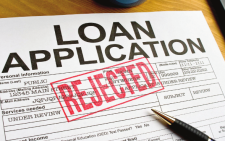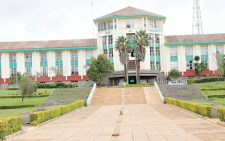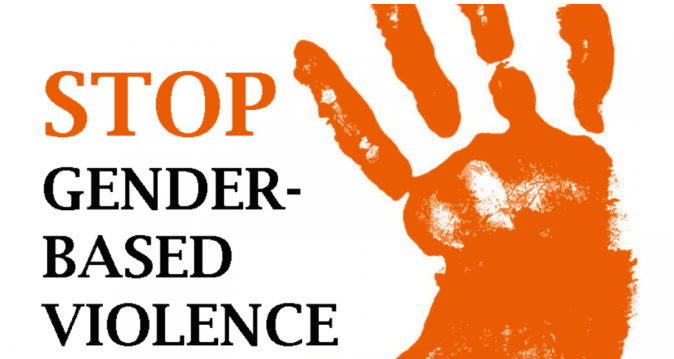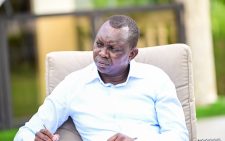The uphill task of securing good schools for special needs children

When Yvonne Busolo gave birth to her daughter five years ago, she never imagined she would be raising a child with special needs as she had anticipated a healthy baby.
In 2017, Busolo delivered a healthy baby girl after nine months of anticipation and anxiety, naming her Laura to signify her victory.
At six months, the mother says she noticed her daughter was not squealing, growling, yelling, and blowing raspberries, contrary to peers at her age.
Ideally, at that age, a child would already be making sounds and respond when talked too. This was no the case.
“We then decided to do a hearing test and we were told she could hear so we thought everything was fine and did not anticipate that she could not hear at any point. We just assumed it was a speech delay,” she says.
Busolo says there were no anxieties because the girl had not shown any signs of not hearing as she could respond to her name among other things.
However, as time went by, she noticed the girl had a challenge in communicating, but did not give much attention as every child’s growth is different.
According to Busolo, the girl could only pronounce a few words and only understood if statements were accompanied by actions.
This was more evident when the young girl joined school where her age mates would communicate so well while she struggled in doing so.
“At five years, ideally a child should be communicating well and constructing full sentences, but she could not. She could only pronounce a single word at a time,” she notes.
This then pushed her to have her daughter undergo fresh tests to determine her hearing capabilities.
“We did three different tests in three different hospitals to get a different opinion and our fears were confirmed by all tests. My daughter could not hear thus the inability to communicate well,” she stresses.
With the confirmation, Busolo has accepted her daughter’s disability and has had to learn how to communicate with her using sign language.
However, her headache is no longer whether her child is hearing impaired, but on how she or where she will get a good school for her child.
The education headache
Busolo says the girl has been in a normal school, but with the discovery, she had to transfer her to a school which has units for children with special needs.
“Where I live, the only available school with special needs classes is Aga Khan school in Parkland and I stay in Fedha. That is the nearest school and it is a public school, which I worry about how she will be treated,” she says.
Busolo says her worries stem from previous tales of how children with special needs are mistreated in the public schools instead of being given special attention and also lack of required equipment.
Busolo is not the only parent who faces an uphill task in getting a good school for her child with disability.
Thousands of parents across the country have a story to tell of the challenges they face or have faced in getting good schools for their children with special needs.
Edinah Mokeira’s son, Shujaa who has cerebral palsy turned three years old a month ago.
Ideally, at this age, Mokeira would have already identified the school her son will be joining in the new year to start the playgroup unit.
However, her worry is where she will get the school that will accept Shujaa and treat him with dignity like other children.
“Schools with special units are very few and those available are not equipped to cater for all forms of disabilities.
I always wish for my son to go to school like other children, but with these challenges, my hope is slowly diminishing,” she says.
She says in some of the schools, the caregivers are not well trained to handle children, especially those with mobility disability such as cerebral palsy.
“Children like Shujaa need special attention and diets. He also uses diapers all the time and has medicine he takes every day. I need a school where I’m guaranteed that he will be fed well and cleaned up when he messes himself up and all his needs will be catered for, which will give me piece of mind as I go on with my daily business,” she says.
Article 54 of Kenya’s constitution (2010) requires each person with disability to have access and facilitation to educational institutions, reasonable access to all places as well as access to educational device materials.
Implementing the guidelines
Section 1(b) requires the ministry of education to make sure educational facilities are integrated in the society to make them compatible with the interests of the persons with disability, meaning children with special needs learn in the regular schools, but facilities to cater for special needs children should be available.
Ambassador Simon Nabukwesi, principal secretary, state department of education and research says the law is clear on inclusivity of children with disability in education.
He, however, says the challenge is on implementing the guidelines as provided by the constitution as stakeholders have been slow in implementing some of the recommendations.
“We have been procrastinating on these changes and that is the major challenge. But various steps are being made and hopeful things will change in the near future,” he says. Nabukwesi says the ministry is aware that some parents lock their children in their homes instead of taking them to school.
He says the government has been sensitizing parents, communities and grassroots leaders on the need for children with special needs to go to school, especially since there are few government schools which are equipped to handle such children.












